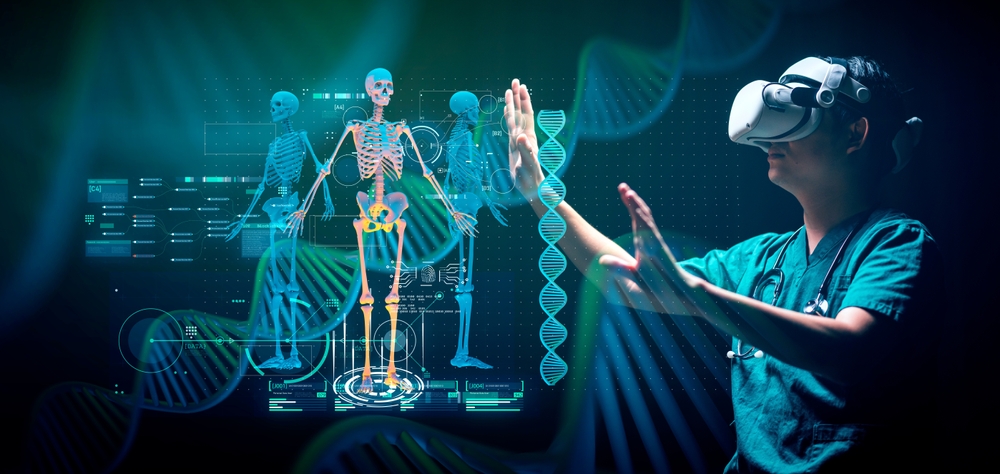
AI’s Leap into Precision Medicine: Revolutionizing HealthcareAI’s Leap into Precision Medicine: Revolutionizing Healthcare Artificial intelligence (AI) is rapidly transforming healthcare, particularly in the field of precision medicine. By leveraging its vast data processing capabilities, AI is enabling clinicians to tailor treatments to individual patients based on their unique genetic, environmental, and lifestyle factors. Personalized Diagnostics and Treatment Plans AI algorithms can analyze vast amounts of patient data, including genomic sequencing, medical history, and lifestyle choices, to identify patterns and predict disease risks. This information empowers clinicians to make more precise diagnoses and develop individualized treatment plans that target the underlying causes of illness. For example, AI-powered systems can identify specific genetic mutations linked to cancer or heart disease, allowing doctors to predict disease onset and develop personalized therapies that minimize side effects. Drug Discovery and Development AI is revolutionizing drug discovery and development by accelerating the identification of new targets and optimizing drug efficacy. AI algorithms can screen millions of molecular structures to identify potential drug candidates, reducing the time and cost involved in bringing new treatments to market. Moreover, AI can model complex biological pathways and predict how drugs will interact with the human body, enabling researchers to optimize drug dosage and reduce adverse effects. Population Health Management AI can analyze large datasets to identify population trends, predict disease outbreaks, and develop targeted interventions to improve public health. By identifying high-risk individuals and tailoring preventive measures, AI can help reduce the burden of chronic diseases and promote overall well-being. For instance, AI-powered systems can identify individuals at risk for diabetes or heart disease based on their genetic profile and lifestyle factors, allowing for early intervention and prevention. Ethical Considerations While the potential of AI in precision medicine is immense, it also raises ethical considerations. Access to genetic information could result in discrimination or insurance bias. It is crucial to establish clear ethical guidelines and ensure that AI systems are used responsibly and equitably. Conclusion AI’s leap into precision medicine is revolutionizing healthcare by enabling personalized diagnostics, targeted treatments, accelerated drug development, and improved population health management. As AI technologies continue to advance, they have the potential to further transform healthcare, empowering clinicians to provide more precise and effective care to each individual patient. However, it is essential to address ethical concerns to ensure that AI is used in a responsible and equitable manner.
Posted inNews